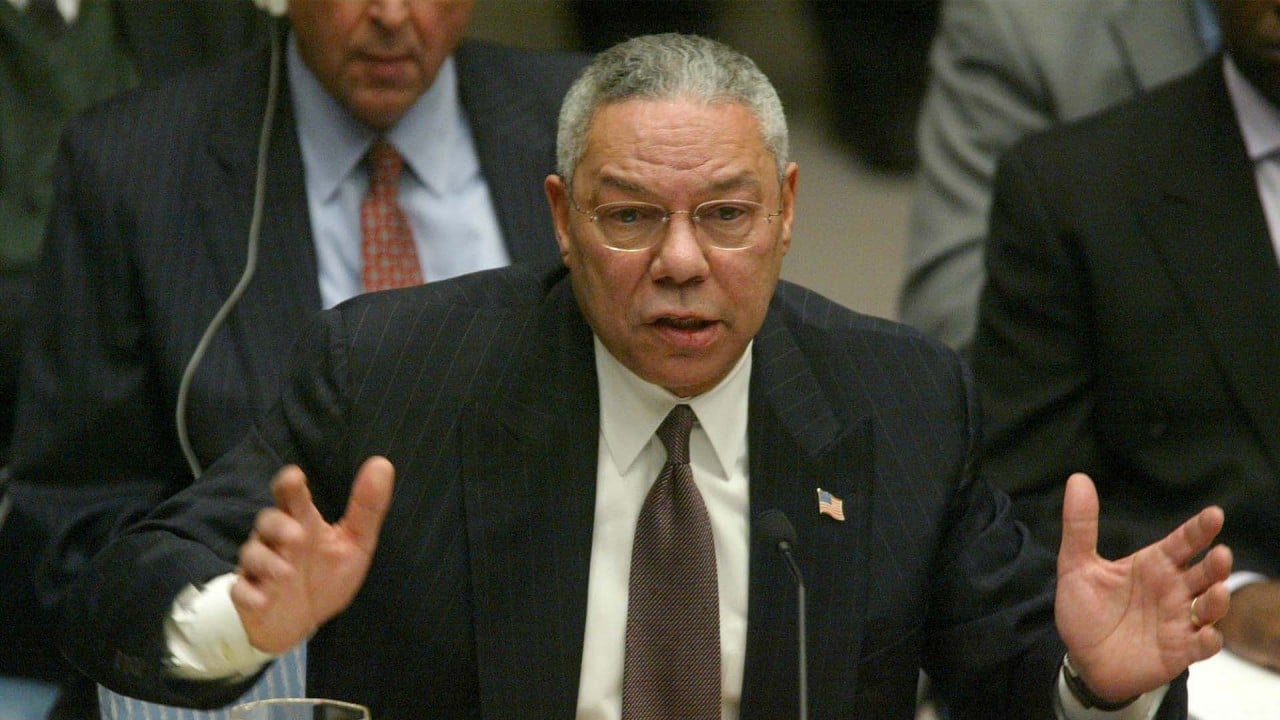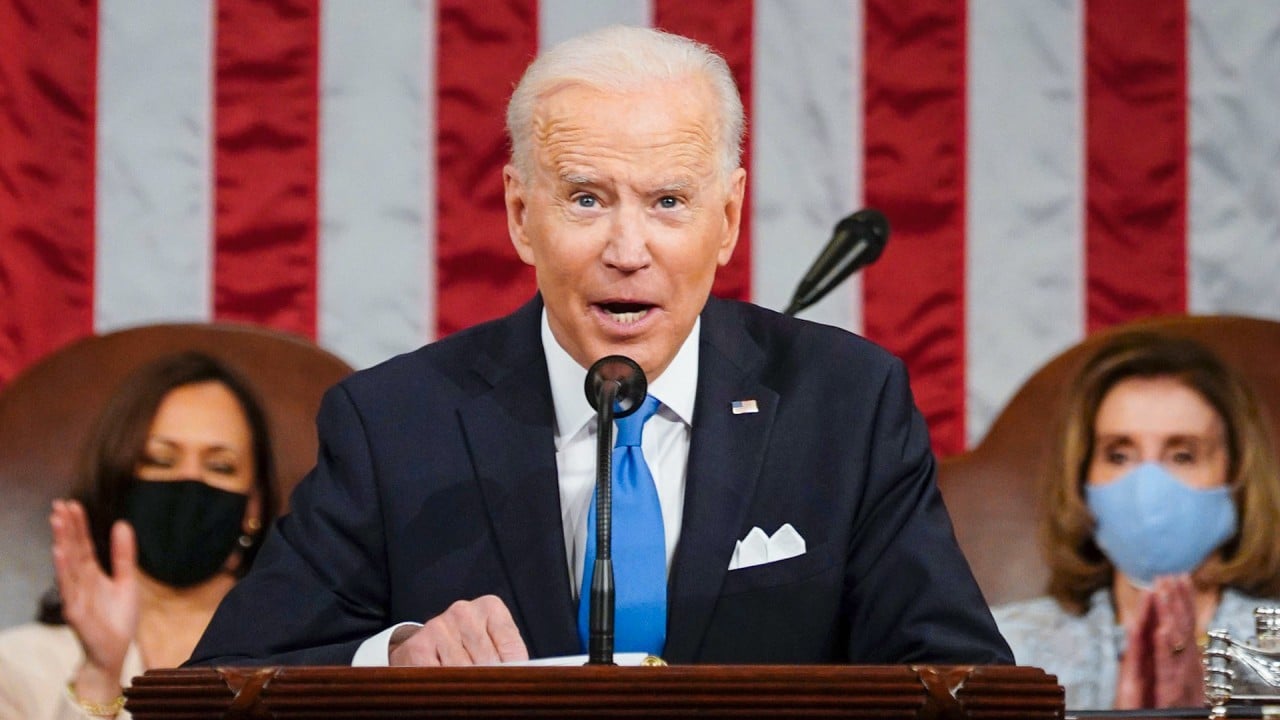
Colin Powell’s warmth to China noted as Beijing ‘deeply mourns his passing’
- Late diplomat appreciated for his willingness to engage with Beijing – a stance he maintained despite criticism from some in the US
- The former secretary of state steered relations through a turbulent period and left office with US-China ties relatively healthy
For the first few days of the ensuing 11-day stand-off, Chinese leaders, including then president Jiang Zemin, demanded an apology and refused to take calls from their US counterparts.
Things began to change after Colin Powell, Bush’s secretary of state, wrote a personal letter to Qian Qichen, Jiang’s foreign policy guru, expressing “regret” and “sorrow” and saying he was “very sorry” about the loss of the Chinese pilot.

02:07
Colin Powell, first black US secretary of state, dies at 84 from Covid-19 amid cancer battle
“We deeply mourn his passing and express our sincere sympathy to his family,” Chinese foreign ministry spokesman Wang Wenbin said on Tuesday.
A veteran of the Vietnam war, a top general and the first black US secretary of state, Powell was viewed as one of the most China-friendly American senior diplomats of recent times, showing consistent belief in engagement and friendly ties.
Wang’s remarks showed the Chinese government’s recognition of Powell, according to Pang Zhongying, an international affairs expert at the Ocean University of China.
“With his diplomatic tact and calmness, Powell helped steer bilateral ties through some difficult times at the turn of the century, which in retrospect is of particular significance for China’s upwards trajectory,” he said.
Before he stepped down as America’s top diplomat in 2005, Powell stated proudly that bilateral ties were in their “best state in three decades”. Many Chinese analysts would agree.
Powell was also remembered fondly in China for his efforts to involve Beijing in the US’ diplomatic impasse with North Korea. During a 2003 visit to Beijing, he requested China’s help in organising multilateral dialogue with Pyongyang, which became the six-party talks aimed at North Korea’s denuclearisation.
“What Powell did was basically to outsource the challenging task of dealing with North Korea to China, a policy largely inherited by the Barack Obama administration,” Pang said. “It significantly increased Beijing’s international exposure and was essentially a step to share America’s diplomatic clout with China.”
Gu Su, a political scientist at Nanjing University, said Powell remained a moderate voice on China throughout his career and was among the few Republican critics of former president Donald Trump’s confrontational approach.
“I find it quite admirable that Powell, defying criticism at home, kept his faith in continued engagement with China even after getting tough on China became a bipartisan consensus in the Trump era,” Gu said.
During his senate confirmation hearing in 2001, Powell described China as “a competitor, a potential regional rival” and a trading partner, not an “inevitable and implacable foe”.

03:53
China ‘closing in fast’, says US President Joe Biden in first address to Congress
Powell was vocal against Trump’s trade war with China and incoherent China policy. “China is not an enemy in that sense,” Powell said in 2018. “Let’s find ways to talk and engage, recognising that not everybody is like the United States.”
But with a widening consensus on China among US politicians, the business community and the public, Powell has been accused of being a “panda-hugger” for resisting a major shift in China policy.
Powell’s view on Taiwan – self-ruled but claimed by Beijing – also attracted criticism. During a visit to Beijing in 2004, he was quoted in Chinese media as indicating that Washington favoured its “peaceful reunification” with mainland China. The US State Department backtracked on his remarks after fierce criticism in the US and Taiwan.
Gu said it was a pity that Beijing did not call Powell “an old friend” – a label usually reserved for communist leaders or sympathisers. The description has been used to recognise a select number of Western politicians, such as former diplomat Henry Kissinger and former president George H.W. Bush.
“China should appreciate more of what Powell has done and give him more credit for his rather positive views on China,” Gu said. “Without Powell and other pro-engagement politicians, American perceptions of China may become increasingly hostile.”

